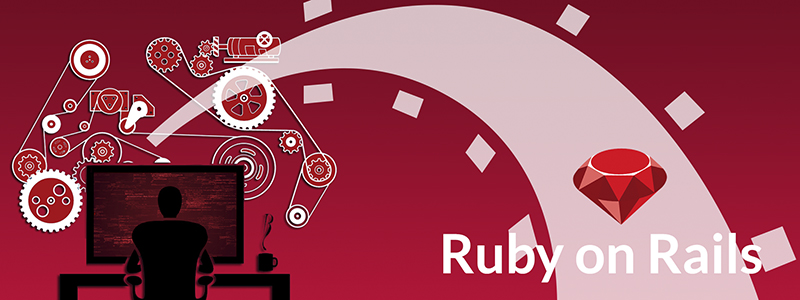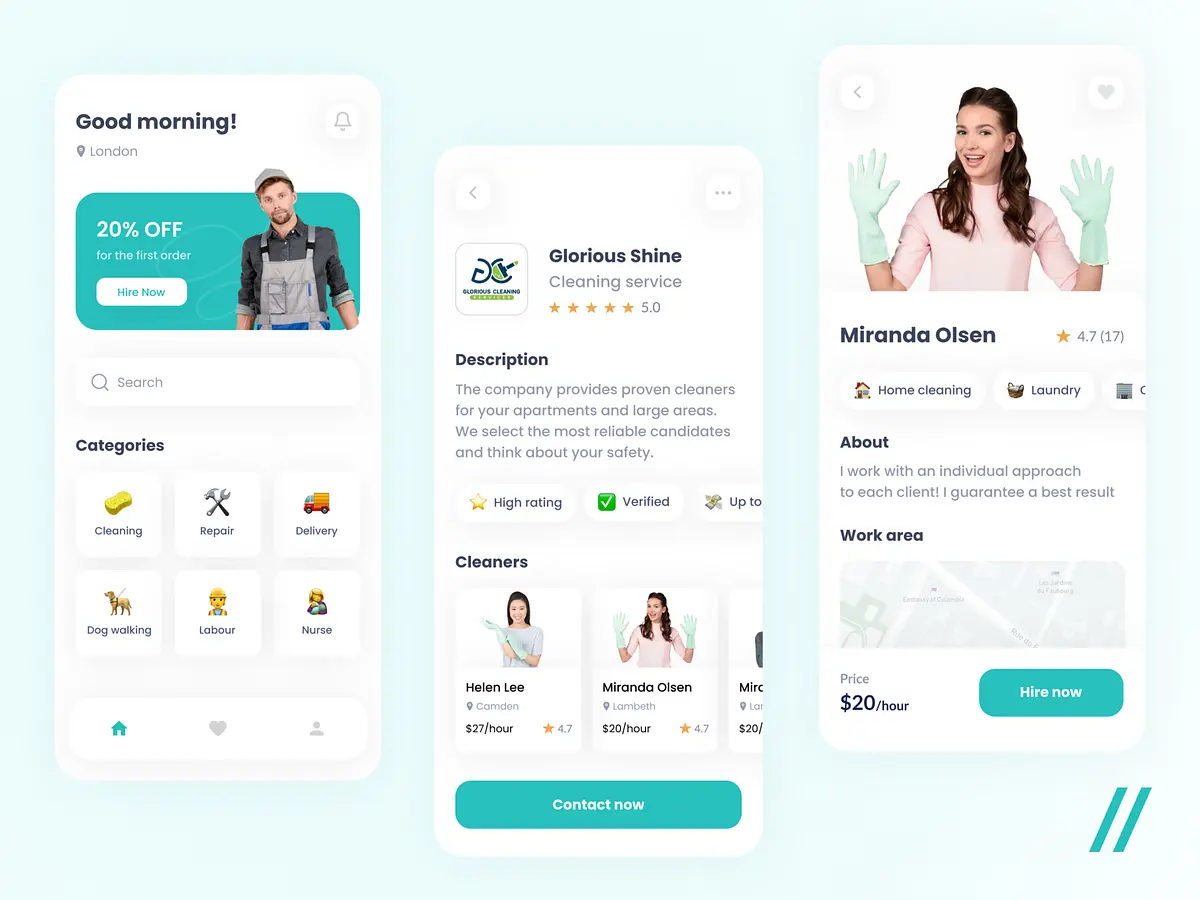Ruby on Rails vs Django: Which Framework for Your Project?


In the dynamic world of web development, two frameworks stand out as giants: Ruby on Rails vs Django. Both frameworks are open-source, high-level, and designed to streamline the development of web applications. While they share many similarities, they also possess distinct characteristics that cater to different developer preferences and project requirements. In this article, TECHVIFY will discuss two frameworks to help you understand the basis for making vital choice decisions.
Ruby on Rails (RoR) is a full-stack web application framework in the Ruby programming language. Embracing the principles of convention over configuration (CoC) and don’t repeat yourself (DRY), RoR aims to enhance developer productivity by providing a set of ways that minimize the need for explicit configuration. It follows the Model-View-Controller (MVC) architectural pattern and encourages using modular components called “gems” to extend functionality.

Ruby on Rails
Django is a high-level web framework targeted for Python that follows the Model-View-Controller (MVC) architectural pattern. Known for its “batteries-included” philosophy, Django provides a comprehensive set of tools and features for web development. It emphasizes rapid development, scalability, and the creation of reusable components called “apps.”

Django
The Ruby programming language powers the development of the Ruby on Rails (RoR) framework. Ruby is known for its readability and developer-friendly syntax. RoR leverages these qualities to provide an intuitive and expressive framework, making it an attractive choice for developers who appreciate clean code.
Django, on the other hand, is built on the Python programming language. Python’s emphasis on simplicity and readability translates into Django’s codebase, providing developers with a straightforward and coherent development experience. Those familiar with Python often find Django’s syntax natural and consistent.
RoR shines in scenarios where rapid application development is a priority. With a convention-based approach and tools like scaffolding, RoR allows developers to generate boilerplate code swiftly. Its emphasis on convention over configuration streamlines the development process, making it particularly suitable for projects with clearly defined specifications.
Django follows a “batteries-included” philosophy, offering extensive pre-built tools and components. The framework is designed around reusable applications, making it an excellent choice for projects requiring modularity and scalability. Django’s built-in admin interface simplifies content management tasks.
RoR’s performance is a topic of discussion within the development community. The efficiency of Ruby’s interpreter is one factor that affects it. While RoR may not be the top performer in all scenarios, its developer-friendly features and rapid development capabilities often outweigh performance considerations.
Django is well-known for its ability to handle large workloads and its scalability. Its commitment to optimizing and improving Python’s performance positions Django as a robust choice for applications with high traffic and resource demands.
RoR strictly adheres to the Model-View-Controller (MVC) architectural pattern, clearly separating concerns. This structured approach enhances code organization and maintainability.
Django follows the MVC (Model-View-Controller) pattern, but people sometimes refer to it as MTV (Model-Template-View) because it does things differently. In Django’s version of MTV, the view takes on the role of the controller, which means it not only shows data to users but also handles requests and gives back data or feedback. This difference can lead to some advantages, such as reducing the amount of code to be written and improving maintainability.
RoR boasts a lively and engaged community. The RubyGems repository is a treasure trove of gems, which are Ruby libraries that enhance RoR’s functionality. The community’s collaborative spirit ensures continuous improvement and robust support.
Django’s community is dynamic and diverse. The Django Packages repository offers a wealth of reusable applications, contributing to the framework’s extensibility. The community’s dedication to best practices and thorough documentation further fortify Django’s ecosystem.

Django vs Ruby on Rails
More Ruby & Django articles:
In the intricate dance of choosing between Django vs Ruby on Rails, the decision becomes a pivotal factor shaped by the specific needs of your project. The delicate balancing act between these two frameworks necessitates a closer look at the distinctive strengths they bring to the table.
| Scalability and Modularity | Django’s architecture enables scalability and modularity, allowing for a robust foundation for projects of varying scales. The modularity aspect provides for developing complex applications with well-defined and reusable components. |
| Reusability of Components | For projects where the reuse of components is a critical factor, Django emerges as the framework of choice. Its emphasis on building reusable apps facilitates efficient and organized development, streamlining processes and reducing redundancy. |
| Python-Centric Environment | If your project is rooted in a Python-centric environment, Django seamlessly integrates into this ecosystem. Leveraging the power of Python, Django offers a cohesive development experience, aligning with the preferences and goals set within the realm of Python programming. |
| Rapid Application | Ruby on Rails takes the lead when rapid application development is a key priority. Its convention-over-configuration approach and many built-in tools accelerate the development process, allowing for the swift creation of robust applications. |
| Traditional Coding Approaches | If you find solace in traditional development practices, Ruby on Rails provides a familiar and structured environment. Its adherence to established conventions minimizes configuration complexities, allowing developers to focus on coding rather than intricate setup procedures. |
| Clear Expression | Ruby on Rails places a premium on developer happiness and code expressiveness. The framework’s elegant syntax and focus on readability contribute to a positive development experience, fostering a sense of joy and creativity among developers. |
Ultimately, your decision depends not only on Ruby on Rails vs Django performance but also on the project’s and its development team’s specific needs. Understanding project requirements, developer expertise, and the desired development style is crucial for making an informed choice. Both frameworks offer a pathway to building robust, scalable web applications that empower businesses and individuals.
As you navigate the dynamic choices between Django and Ruby on Rails, consider leveraging the expertise and tailored solutions provided by TECHVIFY. Our team is dedicated to transforming your web development experience, ensuring your projects are seamlessly executed and optimized for success.
Ready to elevate your coding journey? Explore the possibilities with TECHVIFY‘s Ruby on Rails vs Django performance. Contact us today to embark on a collaborative journey towards digital greatness. Let’s code the future together!


Table of ContentsI. What are Ruby on Rails vs Django?1. What is Ruby on Rails?2. What is Django?II. Critical Differences Between Django and Ruby on Rails Frameworks1. Language2. Applications3. Performance4. Model-View-Controller (MVC) Implementation5. Community and EcosystemIII. Django vs Ruby on Rails – Which Framework to Choose and When?Consider Django if You Need:Consider Ruby on Rails if You Need:Conclusion Technological advancements are paving new paths for companies across different sectors, and the logistics industry is no exception. According to a survey by Gartner, 87% of supply chain professionals plan to invest in enhancing the resilience of their platforms. Logistics encompasses a…
26 July, 2024

Table of ContentsI. What are Ruby on Rails vs Django?1. What is Ruby on Rails?2. What is Django?II. Critical Differences Between Django and Ruby on Rails Frameworks1. Language2. Applications3. Performance4. Model-View-Controller (MVC) Implementation5. Community and EcosystemIII. Django vs Ruby on Rails – Which Framework to Choose and When?Consider Django if You Need:Consider Ruby on Rails if You Need:Conclusion The technology sector is advancing at an unprecedented pace, and the HR landscape is evolving right alongside it. To attract top talent, HR professionals and organizations need to stay ahead of emerging technology hiring trends. This year, we are witnessing significant shifts…
25 July, 2024

Table of ContentsI. What are Ruby on Rails vs Django?1. What is Ruby on Rails?2. What is Django?II. Critical Differences Between Django and Ruby on Rails Frameworks1. Language2. Applications3. Performance4. Model-View-Controller (MVC) Implementation5. Community and EcosystemIII. Django vs Ruby on Rails – Which Framework to Choose and When?Consider Django if You Need:Consider Ruby on Rails if You Need:Conclusion Customized software plays a major role in managing various tasks within the telecom industry. It is essential for allocating numbers to subscribers and managing networks through optimized and AI-enabled routing protocols. Additionally, it aids in detecting fraud with intelligent telecom software development…
24 July, 2024


Thank you for your interest in TECHVIFY Software.
Speed-up your projects with high skilled software engineers and developers.
By clicking the Submit button, I confirm that I have read and agree to our Privacy Policy